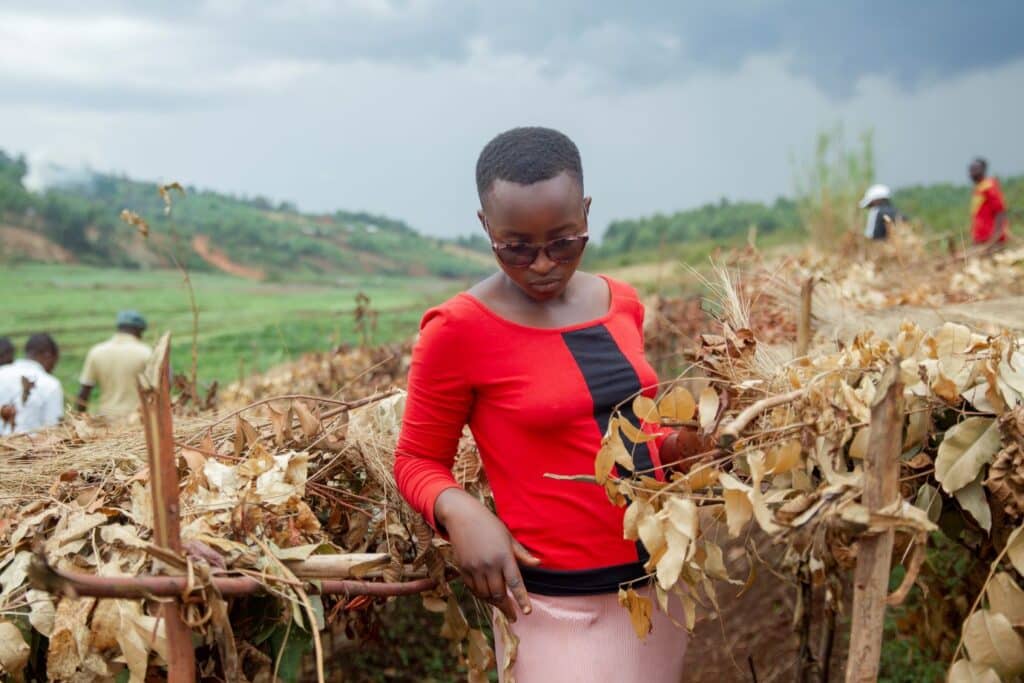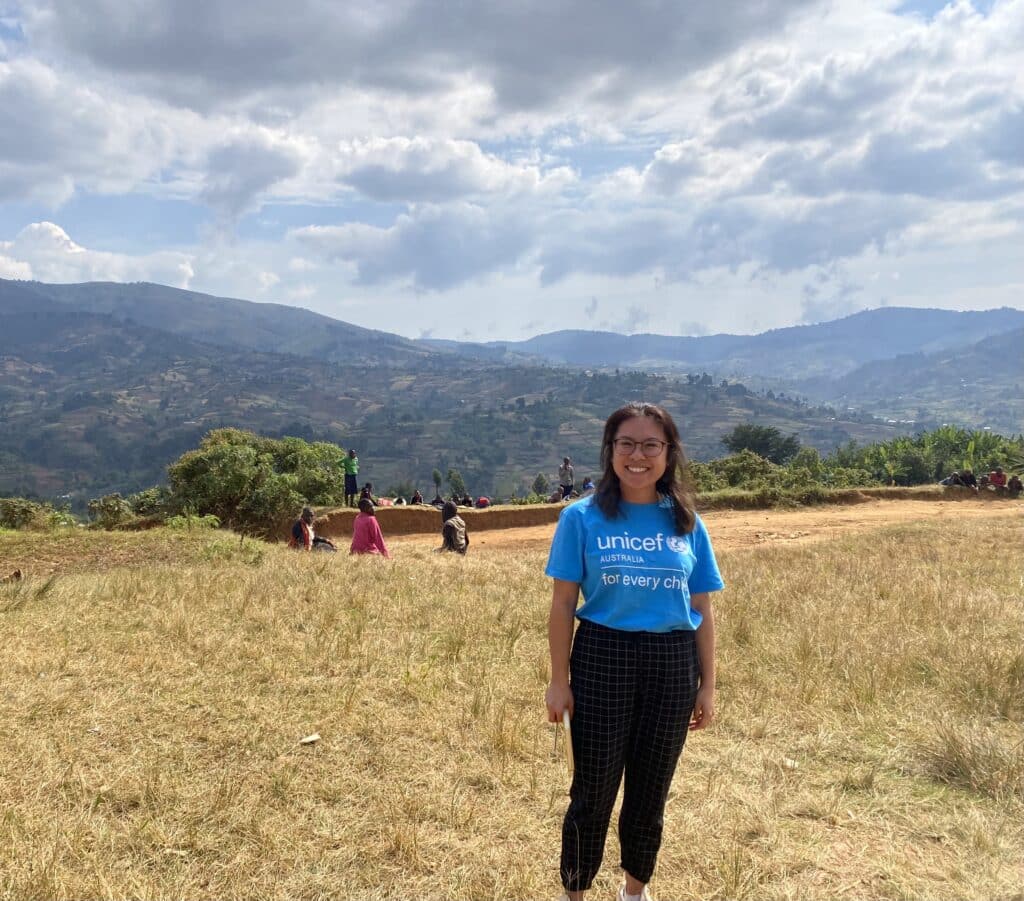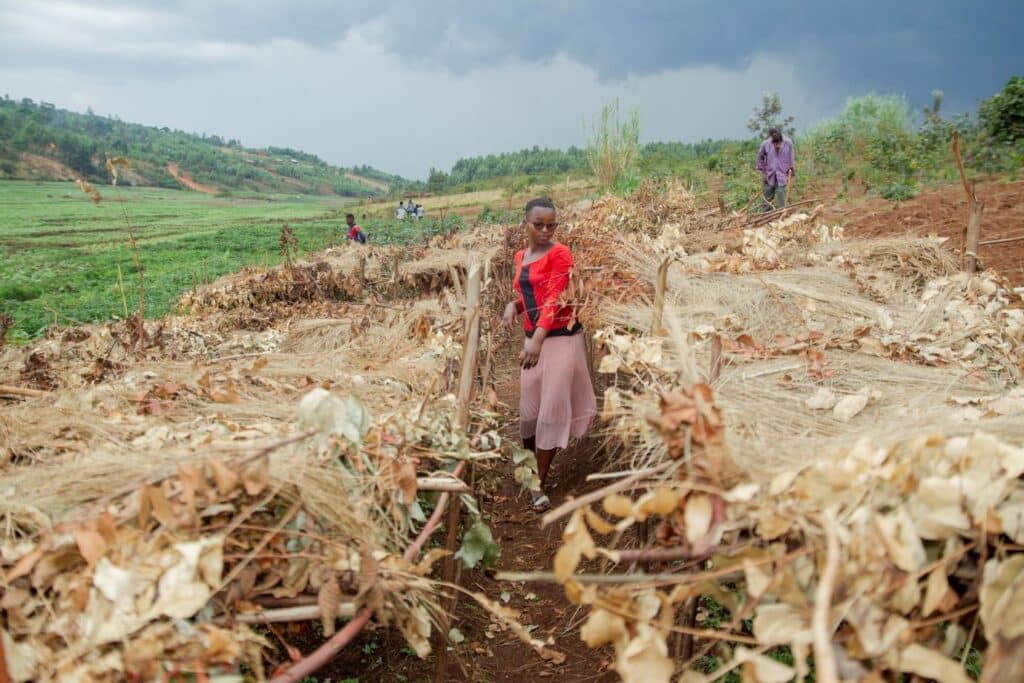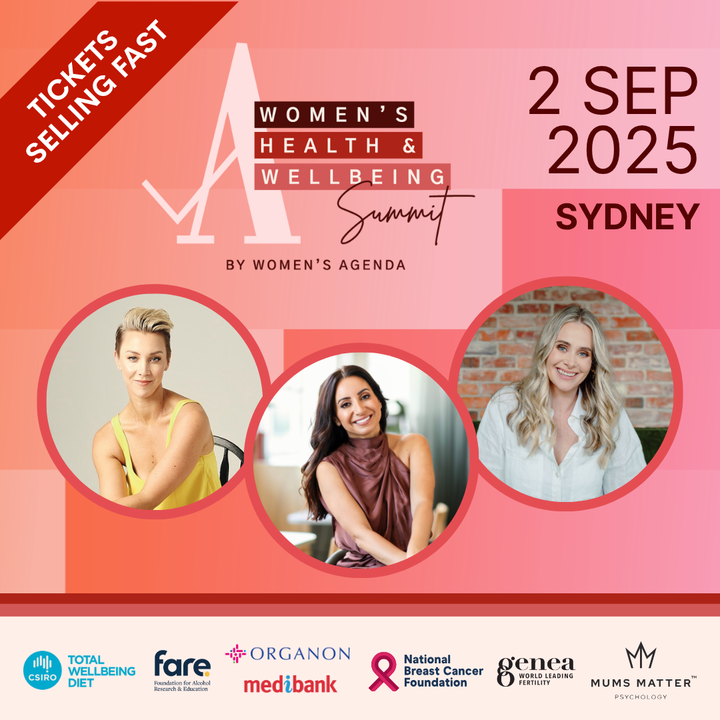In countries around the world children are growing up battling for their most basic rights to health, education and safety. In these countries where it’s hard to be a child, it’s often hardest for girls. There is no country on track to meet the Sustainable Development Goal for gender equality, and according to the UN Secretary General, a gender equal world is 300 years away.
For teenage girls such as Christa-Bella in Burundi, the odds are stacked against them from birth.
Eighty-four per cent of adolescent girls in this small East African nation live in poverty. Girls often miss out on school because they are required to spend hours each day searching for and collecting firewood to heat the house and for cooking and then more time preparing the meals for their family and doing household chores. Nineteen per cent of young women are married before their 18th birthday and six per cent of girls give birth before they turn 20 years old.
Such is the status of girls and women in the community that 38 per cent of married girls experience physical or sexual abuse by a partner and 63 per cent believe a husband hitting or beating their wife is justified.
Girls all over the world must beat the odds. Not only beat them, but have the community support to push through to the other side, with investments to change the structures, institutions and dynamics that maintain inequality and give it power.
Christa-Bella is one of the few who managed to stay in school, but with a lack of prospects for further education or work, it can be hard to show girls the purpose of even getting that far.
Surrounded by vast unemployment in her community, Christa-Bella knew from an early age that when she finished school, there was no ready job market for her to show her intellect and education, and earn a living. She expected she would have to sit and wait for any kind of job offer, if she was lucky enough to receive one.

For girls to get an education and thrive, we need circuit breakers to transform gender stereotypes and harmful social norms, to provide hope and possibility.
UNICEF is invested in programs that advance gender equality through greater access for girls to education and health, and protection against violence and sexual abuse. UNICEF believes investing in girls’ rights, wellbeing and leadership equips them with knowledge, skills and opportunities so they can make their own choices, protect their health and bodily autonomy, and reach their full potential.
There is no one size fits all solution, but in places like Burundi, and closer to home in Papua New Guinea, engaging girls in the most unexpected ways, through innovation and entrepreneurship, is seeing success.
UNICEF’s Creatable Project* teaches creative problem-solving skills through Science, Technology, Engineering and Mathematics (STEM) learning. In this program Christa-Bella and her classmates then tackle real-life issues impacting them, their families and their community, such as food insecurity.
Almost 70 per cent of people in Burundi cannot afford nutritious food, a problem deepened by climate change, with droughts impacting crops year after year. Learning innovative farming techniques through Creatable, Christa-Bella had a newfound confidence in herself and went on tocreate a new concept for fertiliser. Her idea to use urine as fertiliser for crops had not been seen in her community before, and after winning a contest with this idea and a prize of $1,500 she has been able to start a larger-scale project, growing vegetables and building nurseries for the community.
In Papua New Guinea, a country where 91 per cent of adolescent girls live in poverty and with a high incidence of gender-based violence and sexual violence, the Teen Entrepreneurs* program is advancing gender equality in an education project teaching entrepreneurial skills including setting up a business, financial literacy and product design.

Teachers and students are encouraged to challenge gender stereotypes in every way that they interact in the class, such as assigning roles in a business team, learning how to respectfully provide feedback on ideas and actively listening to take on constructive criticism. We want the students to experience a diversity of roles regardless of gender, so that they don’t fall into gender stereotypes where only boys are CEOs and girls are secretaries.
We can help pave the way for teenage girls to make their hopes and dreams for their future into a reality if we keep fighting for gender equality. Adolescent girls are so often left behind and their voices unheard that investments cannot wait, certainly not 300 years.
*Creatable Project and Teen Entrepreneurs are supported by the Australian Government through the Australian NGO Cooperation Program (ANCP)


